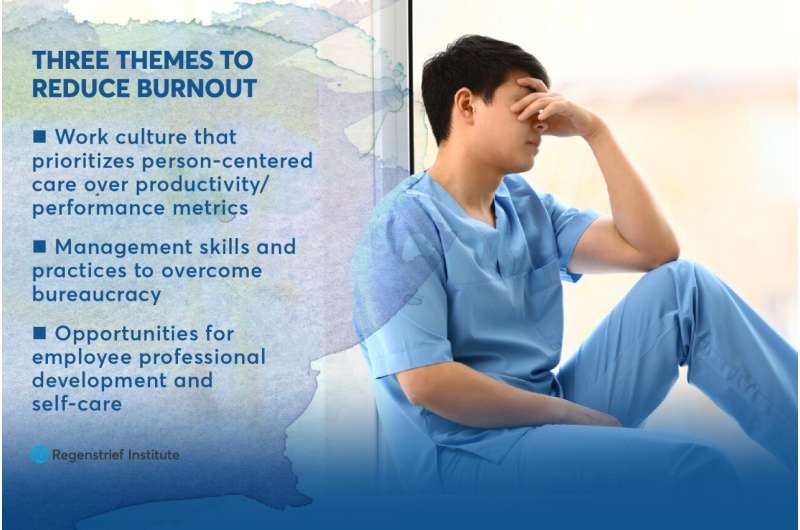Study identifies three ways to reduce clinician burnout and increase work engagement


Clinician burnout in healthcare is a growing area of concern, especially as the COVID-19 pandemic stretches on. Research from the U.S. Department of Veterans Affairs and Regenstrief Institute looked at ways organizations can address burnout.
“There is plenty of attention on burnout these days, but the approaches we use to combat it are often centered around building coping skills for staff. But burnout isn’t something we can just train out of people. Resiliency and self-care workshops can be helpful to some people but are not enough,” said first author Angela Rollins, Ph.D., associate director of the VA Health Services Research and Development (HSR&D) Center for Health Information and Communication (CHIC) at Richard L. Roudebush VA Medical Center and research scientist at Regenstrief Institute. “Organizational level interventions need to be implemented to make sure job demands and resources are in balance, which should help prevent many cases of burnout.”
The research team interviewed 40 mental health clinicians and managers from a variety of healthcare systems who were participating in a burnout intervention. The team determined results of those interviews could be broken down into three themes around how organizations might reduce burnout.
“Clinicians told us that they chose this line of work because they wanted to help people. When policies get in the way of providing good care, it undermines morale and engagement,” said Dr. Rollins. “This particular study focused on mental health providers, but this is likely applicable to all healthcare professions. This isn’t an issue that can be solved at the individual or supervisor levels. The health system is out of balance, and that needs to be addressed. This research can be used to inform the development of health system, organizational and program-level initiatives.”
Source: Read Full Article




